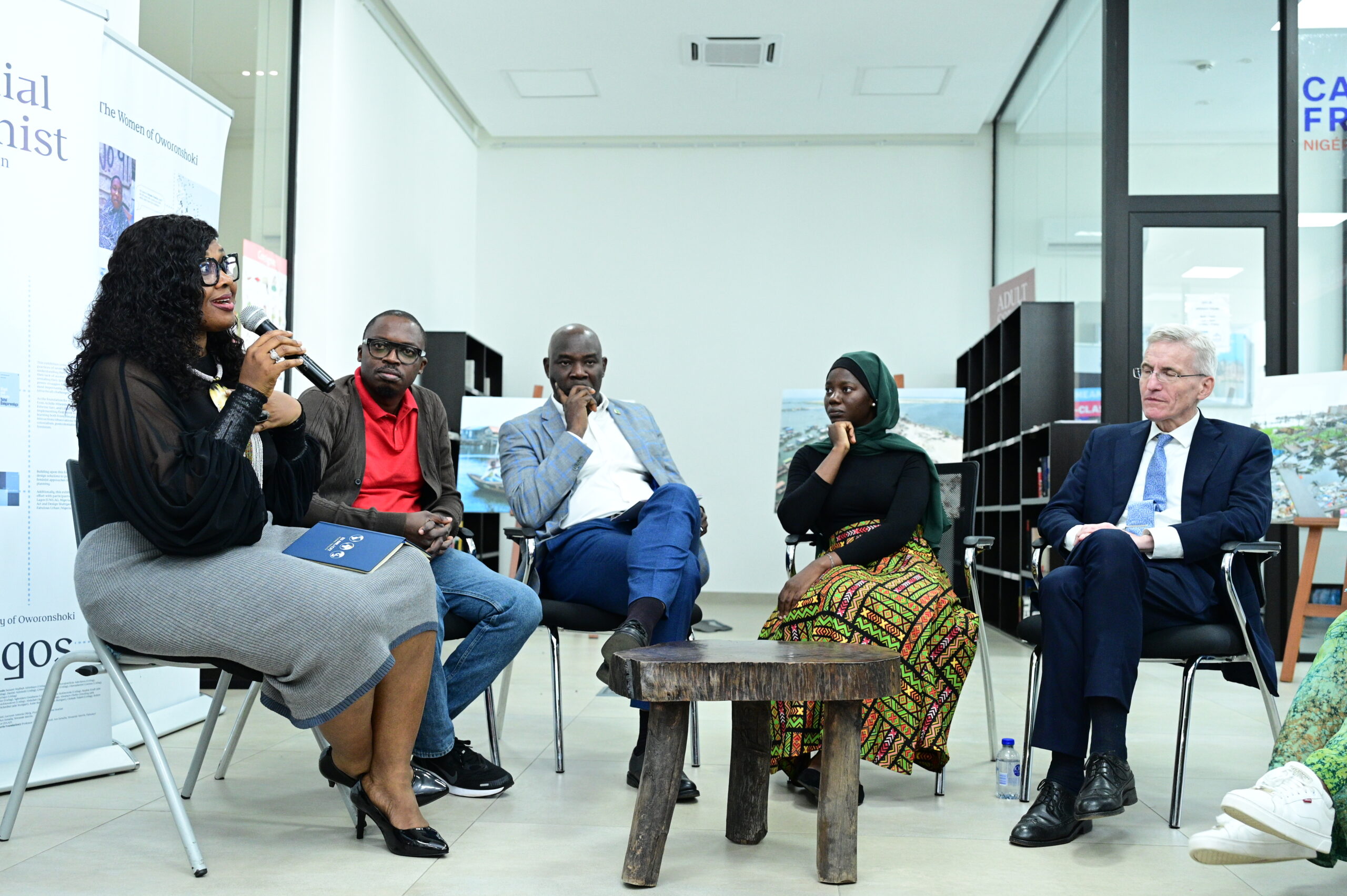
Spaces for Change | S4C and Communities Alliance against Displacement (CAD) joined urban sector stakeholders at the Inclusive Urban Development Forum organized by the Fabulous Urban Foundation, the German Consulate, and Heinrich Boll Stiftung on December 2, 2023, in Lagos. In the wake of the recent demolition spree in Lagos State, stakeholders comprising government officials, town planners, diplomats, artisans, and representatives of Lagos informal communities deliberated on the impacts of the state’s urban development policies and practices and proposed alternatives to the top-down, demolition-centric approach to urban planning in Lagos State which has resulted in mass evictions and displacement of city dwellers across the state.
Over the past year, the Lagos State authorities carried out demolition operations in many parts of the city, citing various reasons ranging from distressed buildings to contravention of environmental laws and building codes. In October 2023, for instance, over 40 buildings were demolished in Ikota for allegedly violating physical planning and building control regulations, leaving scores of families homeless. Similarly, more than 25 completed terraced buildings and other structures built along the drainage channel were demolished in Lekki’s highbrow Signature Villa Estate for allegedly contravening the state’s environmental regulations. Although these demolitions are typically justified by invoking the state’s urban development policies, they bring to light a concerning trend where regulatory enforcement trumps the provision of shelter to millions of under-housed city residents.
The city of Lagos is currently grappling with severe housing shortages. The housing deficit in the state is on the rise and is currently estimated at 17 million units. This housing shortage is aggravated by the large-scale demolitions ordered by state authorities without making alternative shelter arrangements for the displaced. The tensions between the state’s regulatory compliance and shelter provisioning obligations highlight the interplay between urban development and human rights. Not all building code violations pose the same level of risk. A grading system could help determine which buildings, despite non-compliance, do not pose significant safety threats and contribute meaningfully to the housing stock.
Discussions at the forum revolved around the performance of Lagos State Development Plan policies, particularly spotlighting the gaps between policy provisions and the daily experiences of Lagos residents. There is a huge disconnect between urban policies and the real needs and challenges faced by residents. While policies—on paper—aim to promote sustainable urban development and adequate housing, their implementation produces starkly different outcomes. For instance, the policies may advocate for affordable housing and controlled urban expansion, but in practice, residents may face issues like unaffordable housing options, insufficient infrastructure, and unplanned urban sprawl. These scenarios underscore the need for a reassessment of urban development priorities. This gap also manifests in the enforcement of building regulations and urban planning laws. While urban regulations are designed to ensure safe and structured urban growth, their implementation often results in mass demolitions and homelessness of large numbers of the urban population, especially the low-income and vulnerable groups. Demolitions are usually carried out without provision for resettlement or compensation. The demolitions may indeed, be legally justified, but at the same time, the approaches employed by the authorities usually fall short of the elementary considerations of humanity and dignity.
Achieving inclusive housing development in Lagos State requires innovative and pragmatic solutions. The forum acknowledged the need for a more inclusive approach to policy formulation and execution, with emphasis placed on the formulation of policies that are not only technically and economically sound, but also socially equitable, taking into consideration the diverse needs and challenges of all residents, including low-income groups, informal settlements, and other marginalized communities. This is only possible where there is a strong political will and commitment to develop and implement policies that truly address the unique challenges of Lagos. Policies need to be tailored to fit the specific context of Lagos State, taking into account its demographic diversity, urban dynamics, and socio-economic realities.
Stakeholders advocated for strengthening legal frameworks to protect residents’ rights against unjust evictions and ensuring that any redevelopment or relocation is carried out in accordance with international human rights standards. Mass sensitization on existing regulations to improve enforcement and prevent illegal and unsafe construction practices is also imperative. Inclusion is more meaningful where urban planning and decision-making processes involve and engage communities and all strata of residents, especially the marginalized and vulnerable populations. In conclusion, achieving inclusive housing development in Lagos State requires a multifaceted approach that balances legal compliance with the needs and rights of all residents. It calls for innovative strategies, strong political commitment, and a deep understanding of the local context to transform the urban landscape into one that is equitable, sustainable, and conducive for all its inhabitants.



